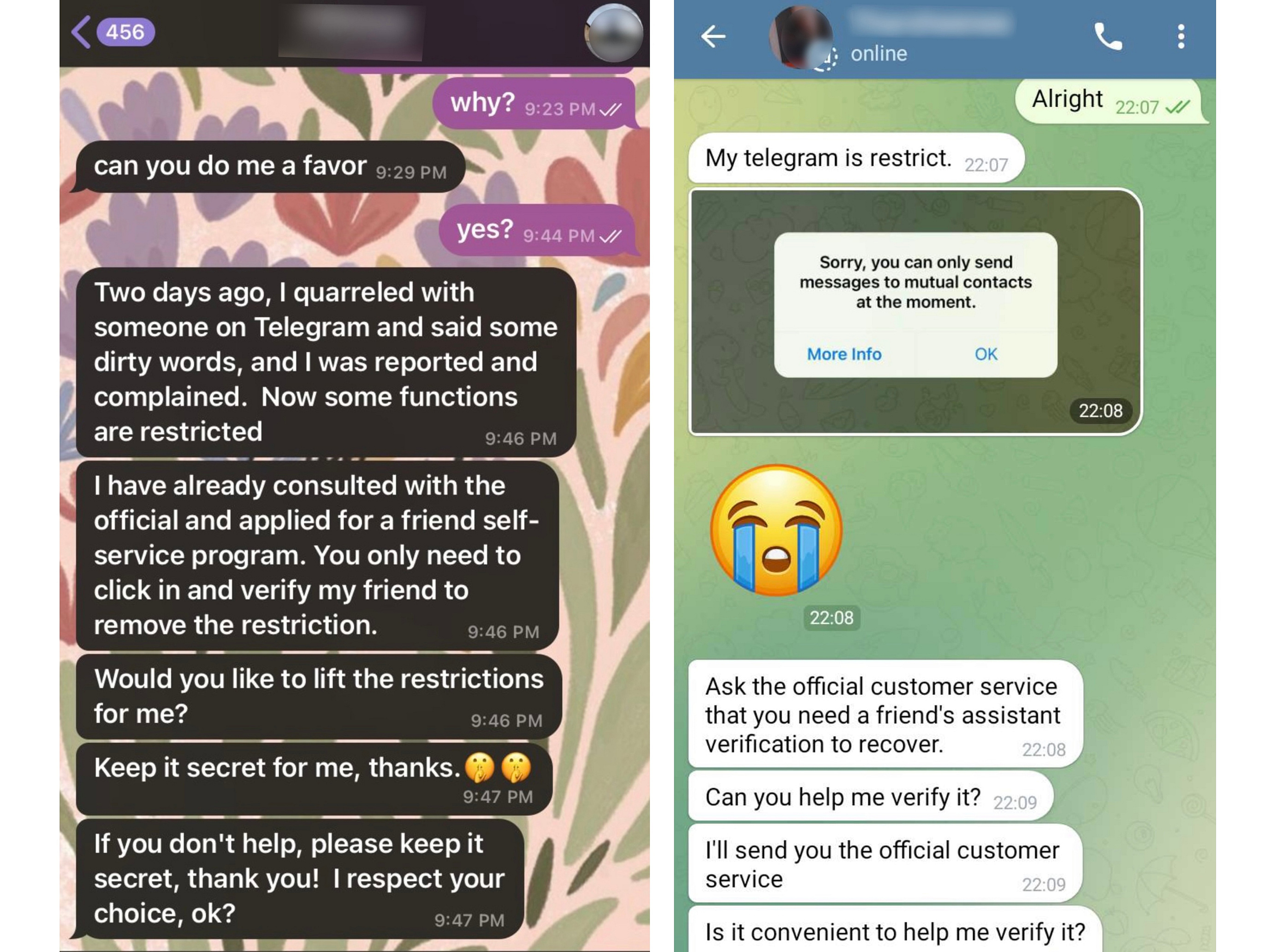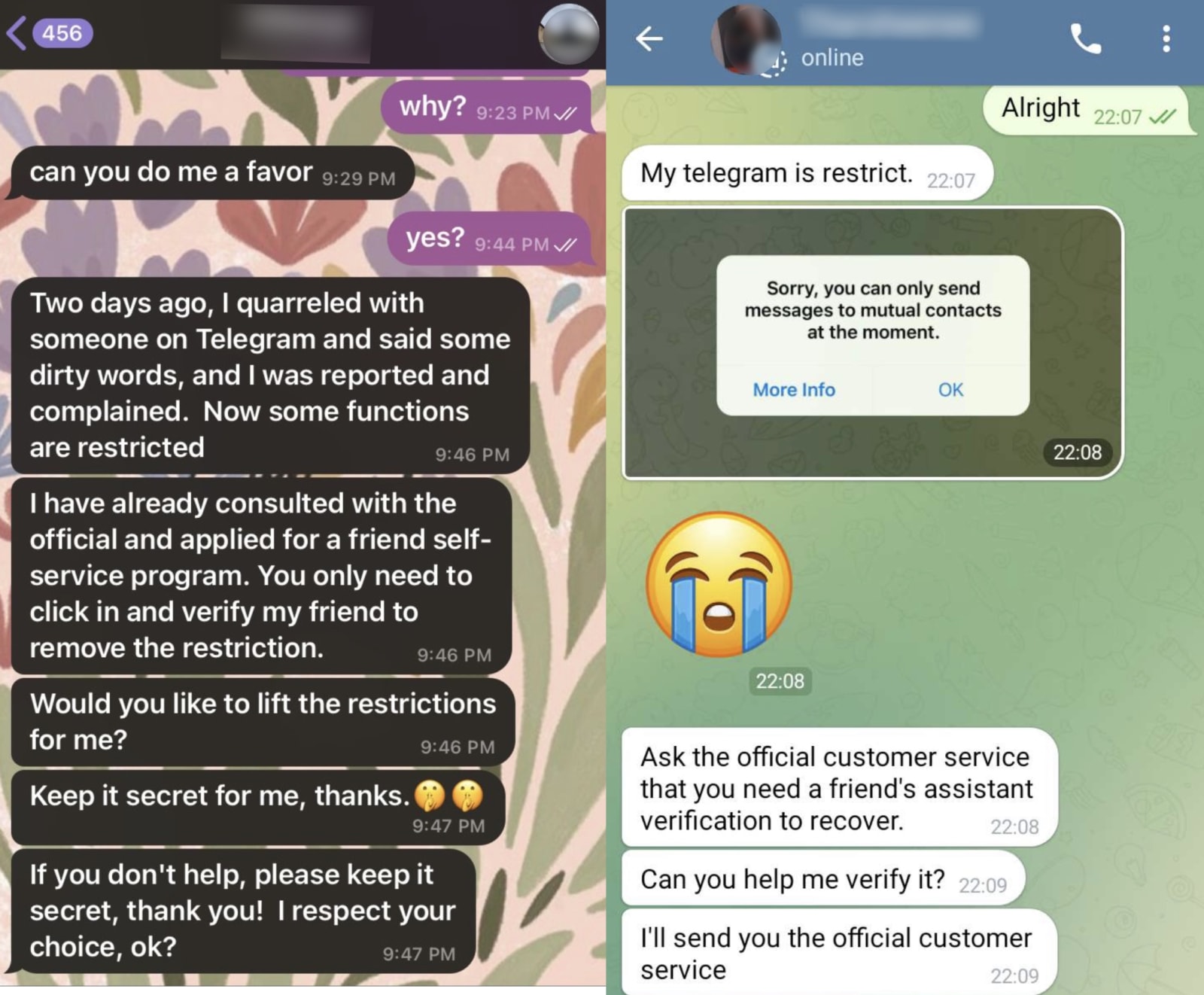In today's digital age, communication apps like Telegram are rapidly growing in popularity. With their myriad features and robust privacy settings, users flock to them for an enhanced messaging experience. However, as more people adopt these platforms, the question arises: will this lead to an increase in spam calls? In this post, we’ll explore the features of Telegram and weigh the potential for spam connections against its benefits.
Understanding Telegram's Features

Telegram stands out in the crowd of messaging apps, offering a plethora of features designed to create a user-friendly experience. Here’s a closer look at what makes Telegram unique:
- End-to-End Encryption: Telegram provides its users with the option of end-to-end encrypted chats, ensuring that messages are only accessible to the sender and recipient.
- Large Group Chats: Users can create groups for up to 200,000 members, making it easier to connect with communities or organize events.
- Channels for Broadcasting: Users can create channels to broadcast messages to an unlimited audience, which can be beneficial for businesses and content creators.
- Secret Chats: For those concerned about privacy, Telegram's secret chats offer self-destructing messages and additional security layers.
- Bots: Telegram supports the use of bots to automate tasks or provide services within chats, enhancing user interaction.
With these features in mind, it's essential to understand how they can impact privacy and security. While bots and channels can arguably increase the chance of unsolicited messages or calls, Telegram incorporates measures to report and block spam. This interplay creates a unique discussion around whether the app will indeed lead to a rise in spam calls or if its functionalities will help mitigate them.
The Rise of Spam Calls

In today's digital age, spam calls have become an unfortunate reality. What was once a nuisance limited to just telemarketing has now morphed into an overwhelming flood of unwanted calls. According to various reports, the number of spam calls has skyrocketed in recent years, leaving many of us dodging calls from unfamiliar numbers.
So, what exactly is driving this surge in spam calls? Here are a few contributing factors:
- Advancements in Technology: With the rise of Voice over Internet Protocol (VoIP) technologies, making calls has become cheaper and easier for spammers. This allows them to place more calls, more quickly and for lower costs.
- Data Breaches: Our personal data is often compromised in data breaches, which gives spammers access to phone numbers and other sensitive information. Once they have this data, your number can easily end up on a spam list.
- Globalization: With the world more interconnected than ever, spammers no longer limit themselves to local areas. Instead, they can target individuals globally, greatly increasing the volume of spam numbers.
According to the Federal Communications Commission (FCC), roughly 48 billion spam calls were made in the United States just last year. That’s an astounding number that gives us a glimpse into the scale of this issue. Many people feel overwhelmed, wondering if there’s any way to escape the ringing phone and constant interruptions.
How Telegram Might Contribute to Spam Calls
Telegram has quickly grown in popularity, attracting millions of users with its encrypted messaging and diverse features. However, as the platform grows, so does its appeal to spammers. The potential for spam calls via Telegram raises concerns about whether this platform will contribute to an increase in spam calls in the future.
Here are some aspects of Telegram that might lead to more spam calls:
- Open Source and Public APIs: Telegram's open-source nature and its public APIs allow developers to create bots and services easily. Spammers might exploit these tools to automate spam calls or send unsolicited messages, leading to call bombardments.
- Large User Base: With millions of active users, spammers see Telegram as a goldmine for targeting individuals. They can leverage user data to tailor their calls and messages, which can be even more effective than traditional methods.
- Less Oversight: Unlike traditional phone networks, Telegram does not have the same rigorous regulations for user accounts. This can make it easier for spammers to create multiple accounts and distribute spam without immediate repercussions.
While Telegram offers privacy features that can protect users, it may inadvertently make it easier for spam calls to thrive. Ultimately, the convenience of the platform could come with the cost of increased unwanted communication if spammers begin to feel more at home within its walls.
Comparative Analysis with Other Platforms
When we think about communication platforms, Telegram often stands out due to its privacy features and unique functionalities. However, it’s essential to compare its potential for increasing spam calls with other popular applications like WhatsApp, Viber, and Facebook Messenger.
1. Privacy Features: Telegram emphasizes user privacy by offering end-to-end encryption and self-destructing messages. While this is commendable, it might also give spammers a false sense of security, enabling them to operate without fear of easy detection.
2. User Verification: Platforms like WhatsApp require users to verify their phone numbers, which can help reduce spam. Telegram, on the other hand, allows users to create accounts with just a username, making it potentially easier for spammers to set up fake accounts.
3. Reporting Mechanisms: Most platforms have robust reporting tools to flag spam and abusive behavior. Telegram provides a reporting feature, however, its effectiveness can vary based on user response and frequency of misuse compared to platforms like Facebook Messenger, which actively monitors reported accounts.
| Platform | Privacy Features | User Verification Requirement | Reporting Mechanism |
|---|---|---|---|
| Telegram | End-to-End Encryption | No | Available |
| End-to-End Encryption | Yes | Active Monitoring | |
| Viber | End-to-End Encryption | Yes | Available |
| Facebook Messenger | Optional Encryption | Yes | Active Monitoring |
In summary, while Telegram has its merits, the lack of strict verification and the anonymity it allows can make it susceptible to spam calls when compared to its counterparts. As the platform grows, so does the need for effective spam control measures.
Preventive Measures Against Spam Calls
As concerns about spam calls rise, users must take proactive steps to minimize their exposure. Here are several effective preventive measures you can use to guard against unwanted spam calls:
- Limit Giving Out Your Number: Be selective about where you share your phone number. Avoid entering it on unfamiliar websites or apps that don’t require it.
- Use a Secondary Number: Consider using a secondary phone number for online registrations or transactions. This way, your primary number remains private.
- Enable Do Not Disturb: Utilize the “Do Not Disturb” feature on your smartphone to screen calls, allowing only contacts in your address book to reach you.
- Use Call Blocking Apps: There are several apps available specifically designed to block spam calls. Look for features that automatically identify and block potential spam.
- Report Spam Calls: Whenever you receive a spam call, report it to your carrier. This enhances their ability to filter these calls in the future.
By implementing these preventive measures, you can significantly reduce the risk of spam calls infiltrating your lifestyle. Remember, staying informed and vigilant is key in navigating communication effectively.
User Awareness and Education
User awareness and education play pivotal roles in the battle against spam calls, especially with the rise of messaging platforms like Telegram. As Telegram becomes a popular method of communication, it’s crucial for users to understand the necessary precautions to avoid falling victim to spam calls and scams that could arise from the app.
With the increasing use of online platforms, it’s vital to inform users about the potential risks associated with sharing personal information. Here are some proactive steps users can take:
- Be Selective with Personal Information: Avoid sharing your phone number unless absolutely necessary. Consider creating a separate number for registrations.
- Utilize Privacy Settings: Familiarize yourself with Telegram’s privacy settings. Adjust them to limit who can see your number and contact you.
- Educate Yourself on Fraud Tactics: Be aware of common scam techniques. Knowing how scammers operate can help you recognize potential threats before they can cause harm.
- Report Suspicious Activity: If you receive spam calls or messages, report them immediately to Telegram and your local authorities. This helps create a safer community for everyone.
Incorporating user education into the experience can make a significant difference in combating spam calls. Provide guidelines, resources, and tips for safe usage, and encourage community discussions on best practices. Remember, a well-informed user is a powerful asset in fighting spam.
Conclusion
As we wrap up the discussion on whether Telegram may lead to an increase in spam calls, it’s essential to reflect on the broader implications of using such platforms. While Telegram offers robust features for communication, it also comes with its own set of challenges, particularly in regard to spam.
In conclusion, whether or not Telegram actually increases spam calls depends on various factors, including user behavior, settings, and education. Here are some final thoughts:
- Vigilance is Key: Always be cautious when sharing personal information and dealing with unknown contacts.
- Regular Updates: Stay informed about updates from Telegram regarding spam prevention measures and best practices.
- Community Support: Foster a culture of awareness within your communities to combat spam collectively.
Ultimately, spam calls are an ever-present issue in our digital age. However, through education, awareness, and responsible usage, we can minimize their impact and enjoy the benefits of platforms like Telegram without the distracting noise of spam.










